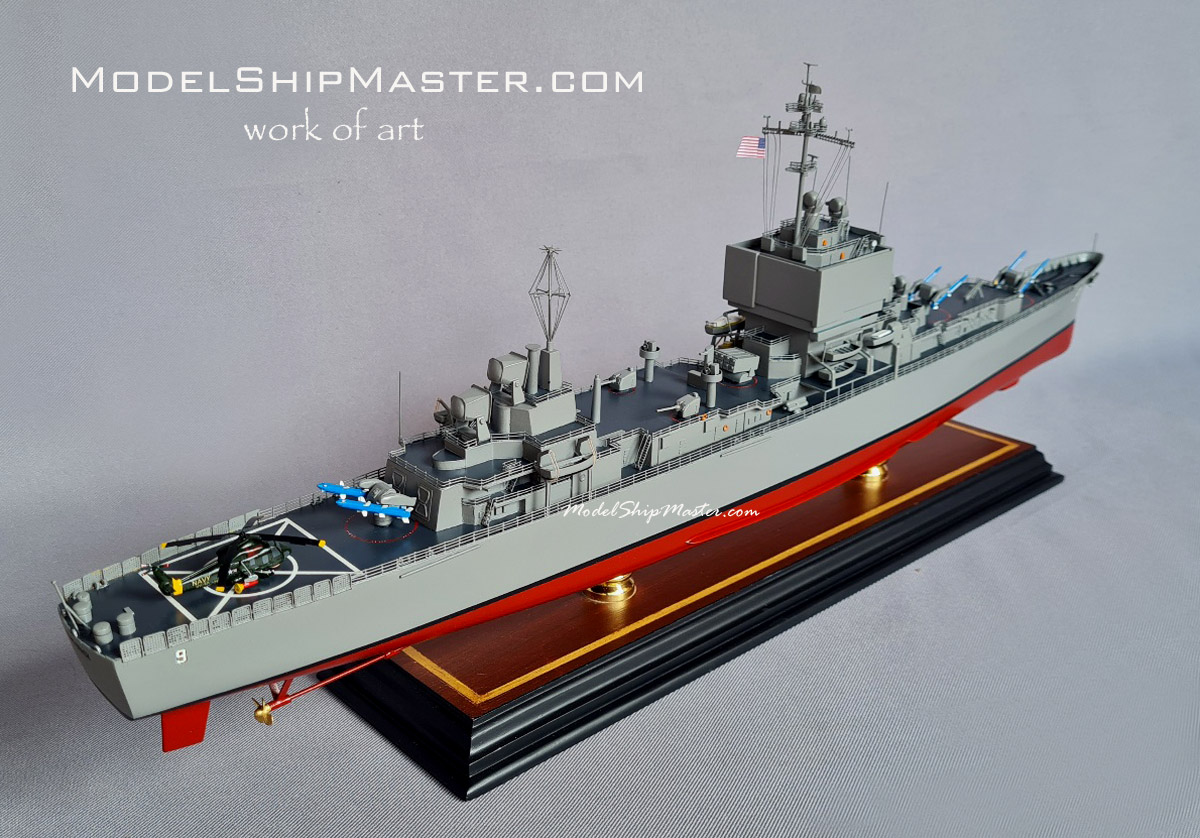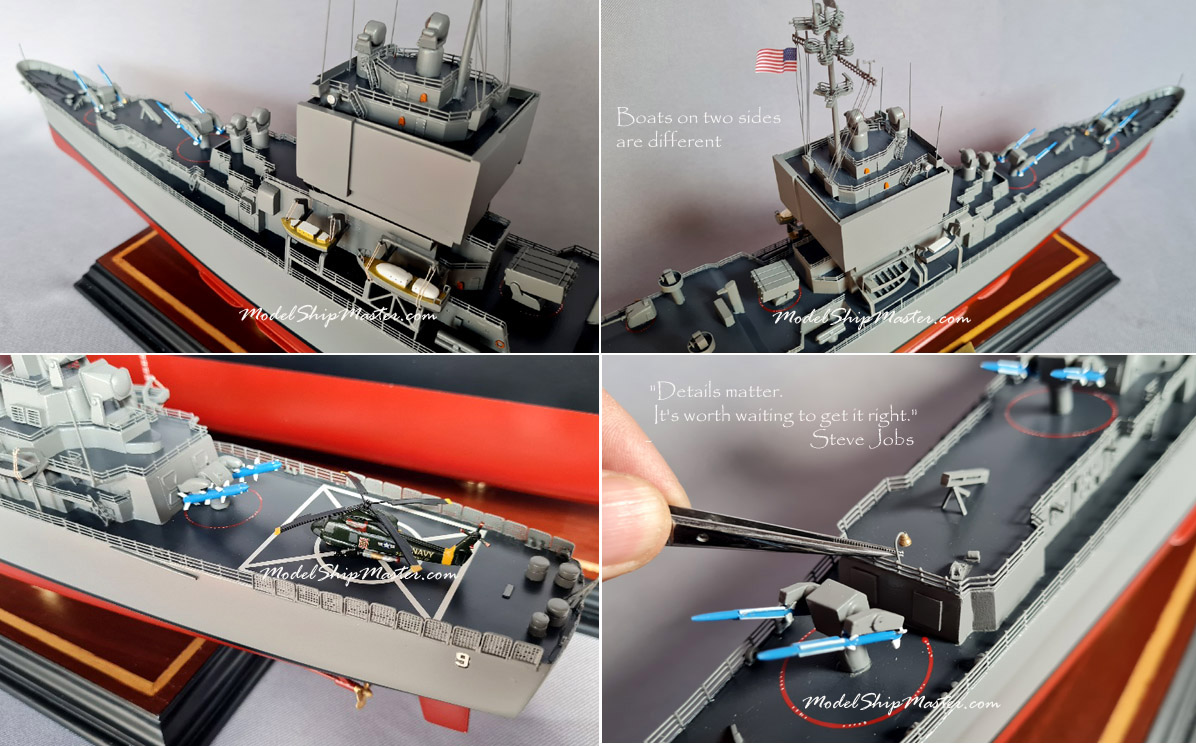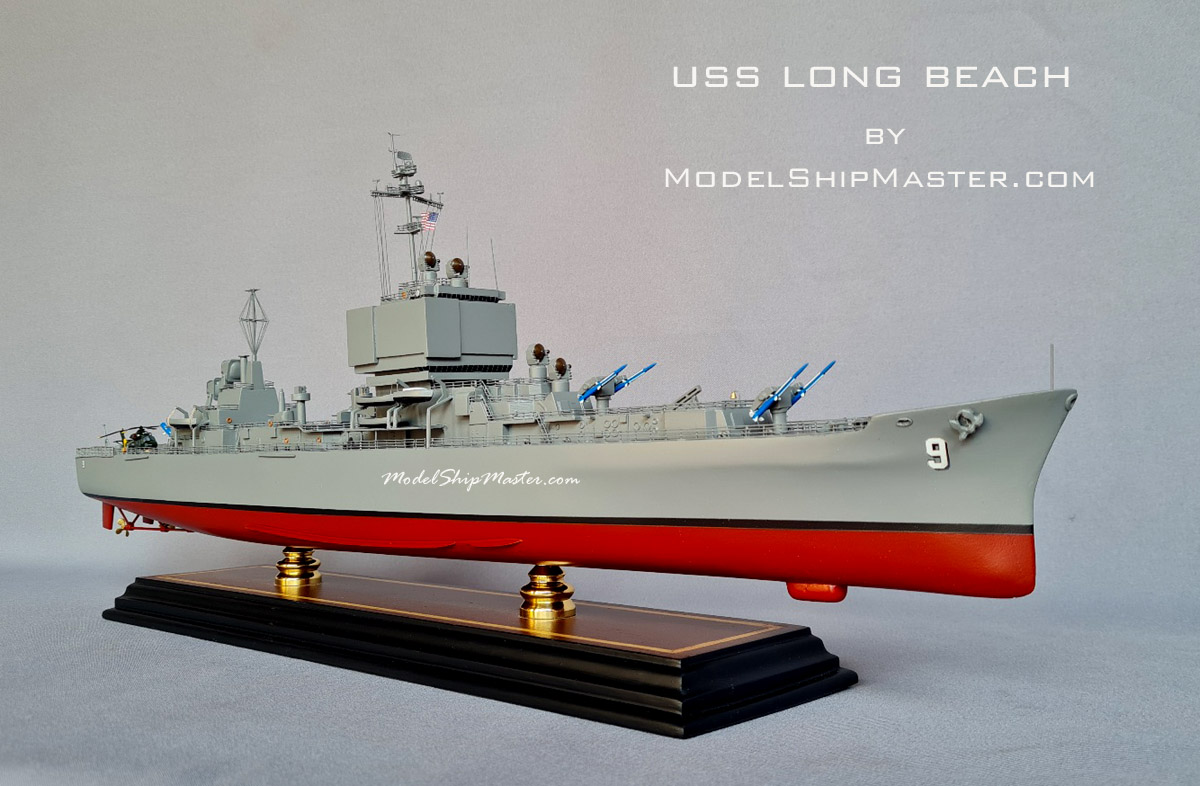|
USS LONG BEACH
MODEL
USS
Long Beach was a nuclear-powered guided missile
cruiser in the United States Navy and the world's
first nuclear-powered surface combatant. She was
laid down 2 December 1957
and commissioned
9 September 1961. Propelled by two nuclear reactors,
USS Long Beach could exceed 30 knots
and had unlimited range. She was under the command
of Captain Eugene Parks Wilkinson, who previously
served as the first commanding officer of the
world's first nuclear-powered vessel--the submarine
USS Nautilus.
USS Long
Beach was the sole member of the Long Beach-class, and
the last cruiser built for the United States Navy to a
cruiser design. All subsequent cruiser classes were
built on destroyer hulls.
As a cruiser, USS
Long Beach had
a flag bridge and quarters to carry an admiral and his
staff.

At 721 feet long, over 17,000 tons
displacement and a crew of over 1,100 sailors and
marines, USS
Long Beach
looked like no other ship the world had
ever seen before, having the highest bridge structure of any
warship except an aircraft carrier.
The high
box-like superstructure contained the SCANFAR system,
consisting of the AN/SPS-32 and AN/SPS-33 phased array
radars. USS
Long Beach was an experimental platform for
these radars, which were precursors to the AN/SPY-1
systems later installed on
Ticonderoga-class cruisers and
Arleigh Burke-class destroyers. Photos taken at her
commissioning and for some time thereafter, show that
the taller, narrower AN/SPS-33 panels were not installed
on the superstructure until a later date.
Another unique thing about that USS
Long Beach was
that she had an elevator that went from the main deck up
to the 10 level (main bridge).

Packed with the latest and greatest gear America had
to offer, USS Long Beach was the most enigmatic ships of
the entire Cold War period.
She had two twin rail launchers forward for
Terrier missiles (and could carry over 100 of them),
amidships she had an ASROC (anti-submarine rocket
system) eight-cell launcher with reloading capability
and two five-inch 38-caliber guns.
On the
fantail, USS Long Beach had the Talos missile system
mounted to the stern. The Talos missiles could be
nuclear armed. Talos missile system was later replaced
by two box launchers for BGM-109 Tomahawk cruise
missiles, with each box containing four missiles.
In May
1964, Long Beach joined the nuclear-powered aircraft
carrier USS Enterprise and the guided-missile frigate
USS Bainbridge to form the
all-nuclear-powered Task Force 1, the first such battle
force group of its kind in the history of naval
operations.
In 1966,
the nuclear-powered cruiser USS Long Beach was deployed
for her first tour of duty off Vietnam and was mainly
stationed in the northern part of the Gulf of Tonkin. From that position, Long Beach maintained
constant radar surveillance to ensure that the North
Vietnamese aircraft couldn’t evade identification and
attempt to confront U.S. aircraft.
During her
second deployment to the Gulf of Tonkin, Talos missiles
fired from USS Long Beach destroyed two MiG-17s at a range
of 70 miles. It was the first
record use of naval SAMs in combat conditions.
The
warship was updated in the late 1970s and later operated
as part of the UN task force during Operation Desert
Storm. Instead of receiving a third nuclear refueling
and proposed upgrade, USS Long Beach was deactivated on
May 1, 1995, after more than 33 years of operational
service.

This primarily wood USS Long Beach model is 27" long
x 11" tall x 4.5" wide.
$2,490  Shipping
and insurance in the contiguous USA included. Other
places: $300 flat rate. Shipping
and insurance in the contiguous USA included. Other
places: $300 flat rate.
Learn more about the
USS Long Beach here:
https://en.wikipedia.org/wiki/USS_Long_Beach_(CGN-9)
|